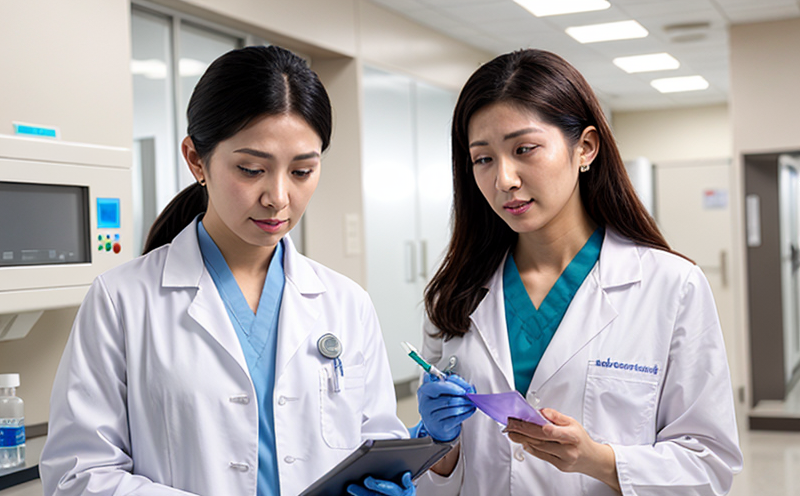ELISA Quantitation of Therapeutic Antibodies Testing
The ELISA (Enzyme-Linked Immunosorbent Assay) quantitation of therapeutic antibodies is a critical process in the pharmaceutical testing sector, particularly for biopharmaceutical and biosimilar products. This method allows for precise measurement of antibody concentrations in complex biological matrices such as cell culture supernatants or patient sera.
The assay’s high specificity makes it ideal for the quantification of therapeutic antibodies, ensuring that the drug product meets stringent regulatory requirements. The process involves several key steps: first, immobilizing the target antigen on a microtiter plate; second, incubating the sample with the antibody under controlled conditions; and third, detecting the bound antibodies using an enzyme-labeled secondary antibody.
Our laboratory follows international standards for this testing method, ensuring accuracy and consistency. The use of ELISA ensures reliable quantitation of therapeutic antibodies, which is essential in the development and quality assurance phases of biopharmaceutical products. This service is particularly important for biosimilars where even slight variations can affect efficacy and safety.
The assay’s reliability is further enhanced by rigorous validation protocols that ensure the method’s accuracy over time. The data generated from this process is used to support regulatory submissions, ensuring that the product meets all required specifications before it reaches clinical trials or markets.
| Standard | Description |
|---|---|
| ISO 22871:2017 | Guidelines for the development, manufacturing and quality control of monoclonal antibodies intended for use as biological medicinal products. |
| ASTM E2914 | Standard Practice for Determination of Total IgG in Therapeutic Monoclonal Antibodies by ELISA. |
Applied Standards
Our laboratory adheres strictly to international standards that ensure the accuracy and reliability of our testing. The primary standard we follow is ISO 22871:2017, which provides guidelines for the development, manufacturing, and quality control of monoclonal antibodies intended for use as biological medicinal products. This standard ensures that all processes are conducted under controlled conditions to maintain consistency.
Additionally, we comply with ASTM E2914, which specifies a method for determining total IgG in therapeutic monoclonal antibodies by ELISA. This ensures that the quantitation process is standardized and can be replicated across different laboratories, enhancing the validity of the results.
Eurolab Advantages
- Accurate and Reliable Results: Our team utilizes advanced instrumentation and employs highly trained personnel to ensure precise quantitation.
- Comprehensive Validation: We validate our methods rigorously to ensure they meet the highest standards of accuracy and reliability.
- Regulatory Compliance: All tests are conducted in accordance with international regulatory guidelines, ensuring compliance for your product.
- Fast Turnaround Times: Our efficient processes allow us to provide timely results, crucial for the development timeline of biopharmaceuticals.
Competitive Advantage and Market Impact
- Precision: Our advanced instrumentation and trained personnel ensure the highest level of accuracy in quantitation.
- Rigorous Validation: We validate our methods to meet the stringent requirements of regulatory bodies, ensuring reliability and consistency.
- Efficiency: Fast turnaround times mean that you can receive your results quickly, which is crucial for development timelines.





